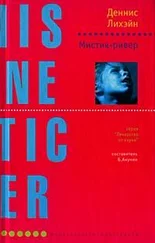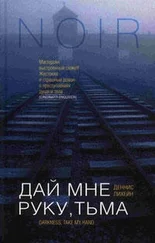“Perhaps Thomas thinks he can weasel a big enough price from Miller.”
“The place is mine . No one can take it, not even my husband. My father said so. He showed me the papers.” Feme sole merchant were what the lawyers called her, with their fancy Latin. The documents allowed her to conduct business almost as if she was a man. At first, it was only with her father’s consent, but as she prospered-and he sickened-it was accepted that she was responsible, allowed to trade on her own. Very nearly independent, almost as good as a man, in the year of Our Lord 1745. And, though she could never say so aloud, better than most.
“I think Clark will be bound by the document,” Seaver said. “At least until someone more persuasive than Thomas comes along.”
The list of people more persuasive and smarter than her husband was lengthy.
“It’s only a piece of paper.” Seaver shrugged. “A fragile thing.”
Anna nodded, trying not to shift from one foot to another. Eventually, Hook Miller would find a way. As long as she’d known him, he always had.
Anna swallowed. “Why are you telling me this?”
He shrugged. “I like to drink at your place.”
She almost believed him. “And?”
She knew what was coming, was nearly willing to pay the price that Seaver would ask. Whatever would save her property and livelihood, the modicum of security and independence she’d struggled to achieve. What were her alternatives? Sew until she was blind, or follow behind some rich bitch and carry her purse, run her errands? Turn a sailor’s whore?
“And?” she repeated.
“And.” He leered. “I want to see what you will do.”
The bad times were hard for everyone, but it was the good times that brought real trouble, she thought. A pretty young lass with no family and a thriving business on the waterfront. She might as well have hung out a sign.
Anna hurried back to the Queen’s Arms, shopping forgotten. No one had ever paid the property any attention when her father ran the place. It was only after she’d taken over the tavern, within sight of the wharves that cut into Boston Harbor, that business grew and drew attention.
The Queen was a neighborhood place on Fleet Street. “The burying ground up behind you, and the deep, dark sea ahead,” her father used to say, but in between was a place for a man to drink his beer after work-or before, as may be the case-the occasional whiskey, if he was feeling full and fat. Or three or five, if he was broke and buggered.
She stumbled over the cobbles in the street, but recovered and hurried along, needing to reassure herself the place was still there, that it hadn’t vanished, hadn’t been whisked away by magic from the crowd of buildings that lined the narrow streets above the harbor. Or been burned to the ground, more likely. She never doubted that her husband, stupid as he was, would find a way to rob her for Miller, if that’s what Thomas imagined he wanted.
Had Thomas Hoyt been content with hot meals twice a day, too much to drink and ten minutes sweating over his wife on Saturday night, church and repentance Sunday morning, Anna could have managed him well enough. She wanted a more ambitious man, but Thomas had come with his mother’s shop next door. When that allowed Anna to expand her tavern, she thought it a fair enough trade.
Until she discovered Thomas was ambitious, in his own way. While she poured ale, rum, and whiskey, he sat in the corner. Ready to change the barrels or quell the occasional rowdiness, he more often read his paper and smoked, playing the host. His eyes followed his pretty wife’s movements and those of all the men around her.
There were two men he had watched with peculiar interest, and Anna now understood why. One was Hook, named Robert Miller by his mother, a ruffian with a finger in every pie and a hand in every pocket. Hook’s gang were first to take advantage of all the trade on the waterfront, from loading and unloading ships to smuggling. But he did more for the local men than he took from them and was a kind of hero for it. Of course Hook appealed to Thomas: he was everything Thomas imagined he himself could be.
The other man he watched was Seaver, but even Thomas was smart enough to be circumspect when he did it. When one of Miller’s men drunkenly pulled Seaver from his chair one night, claiming his looks were souring the beer, Seaver left without a word. But he came back the next night, and Miller’s man never did. That man now drank at another house, where no one knew him. Three fingers from his right hand were broken and his nose bitten off.
The other men left Seaver alone after that. Anna smiled as she served his rum, but it stopped at her eyes. He was content to sit quietly, alone with who knew what thoughts.
Thomas was scrubbing the bar when she arrived. He looked up, smiled as though he remembered nothing of what had happened the night before. Maybe he didn’t.
“There’s my girl. Shopping done?”
“I forgot something.”
“Well, find it and I’ll walk you to the dressmaker’s myself. It’s getting dark.”
He said it as though the dark brought devils instead of the tradesmen who came regularly to her place. Who worshipped her. She had married him a year before, after her father died, for protection. She ran her tongue along the inside of her cheek, felt the swelling there, felt a tooth wiggle, her lip tear a fraction.
“I won’t have you be less than the best-dressed lady in the North End,” he said expansively, as if he emptied his pockets onto the counter himself. Anna and Mr. Long, the tailor, had a deal: Anna borrowed the latest gowns; wearing them, she showed them to perfection, the ideal advertisement with her golden hair and slim waist. The men at her place either sent their wives to the dressmaker’s so they’d look more like Anna, or spent more money at Anna’s just to look at her, a fine, soft, pretty thing amid so much coarseness.
She pretended to locate some trifle under the bar, and Thomas wiped his hands on the seat of his britches. She forced a smile; her mouth still hurt. Better to have him think she was stupid or in love. Even better, afraid.
“The best news, Anna,” he said, taking her arm as they went back onto the street. “Rob Miller has added another twenty pounds to his asking price. We were right to wait.”
It was still less than half the value of the place. Under no circumstances would she consider selling to Hook Miller and give Thomas the money to invest and lose.
She nodded, as if her refusal to sell had been a joint decision.
“I think we’ll wait until Friday, see if we can’t drive the price a little higher,” he said, patting her hand. His palm was heavy and rough. She saw the faint abrasions along the knuckles, remembered them intimately.
She nodded again, kept her eyes on her feet, shoes peeping out from under her skirt, as she moved briskly to keep up with Thomas. He raced across the cobbles, she a half-pace behind.
Friday, then. Three days. Between Miller’s desire for her tavern and Thomas’s wish to impress him, she was trapped.
Friday night came despite Anna’s prayers for fire, a hurricane, a French invasion. But the place was as it always was: a wide, long room, stools and tables, two good chairs by a large, welcoming fire. The old windows were in good repair, the leads tight, and decent curtains kept out the drafts. The warm smells of good Barbadian rum and local ale kept the world at bay.
When Miller came into the tavern, Thomas got up immediately, offered him the best upholstered seat, nearest the fire. Miller dismissed him outright, said his business was with Anna. Anna tried with all her might to divert his attention back to Thomas, but Miller could not have made more of a show of favoring her in front of the entire room, who watched from behind raised mugs. Thomas glowered, his gaze never leaving Anna.
Читать дальше
![Деннис Лихэйн Boston Noir [редактор Деннис Лихэйн] обложка книги](/books/304187/dennis-lihejn-boston-noir-redaktor-dennis-lihejn-cover.webp)


![Деннис Лихэйн - Когда под ногами бездна [Since We Fell ru]](/books/25722/dennis-lihejn-kogda-pod-nogami-bezdna-since-we-fe-thumb.webp)








